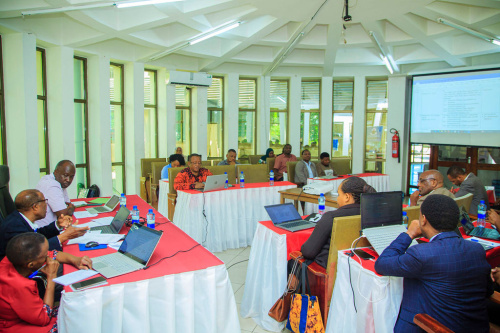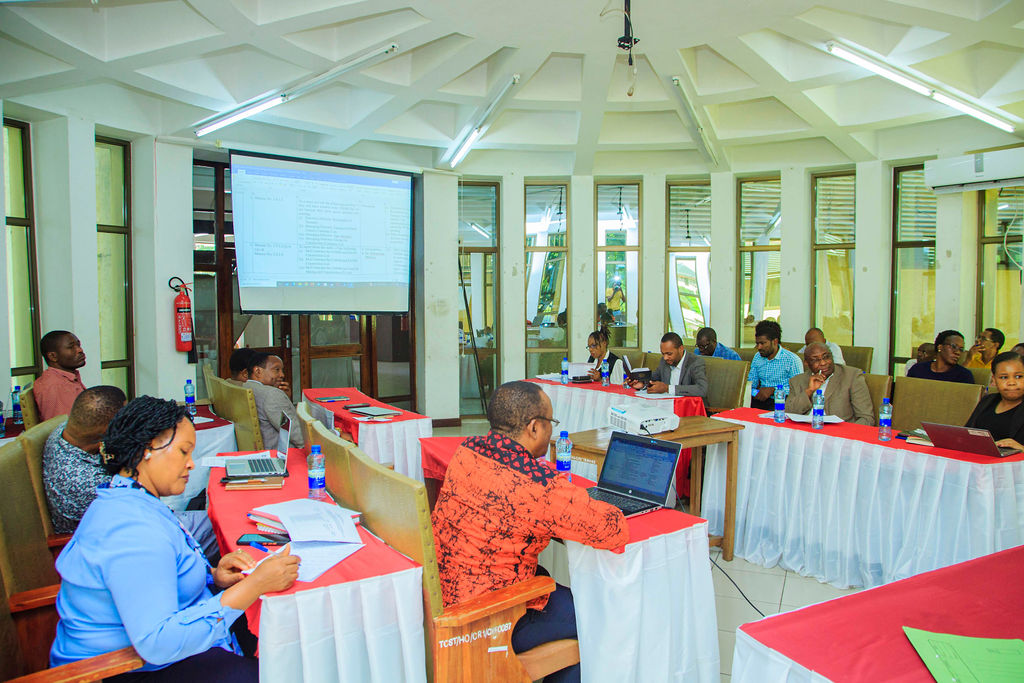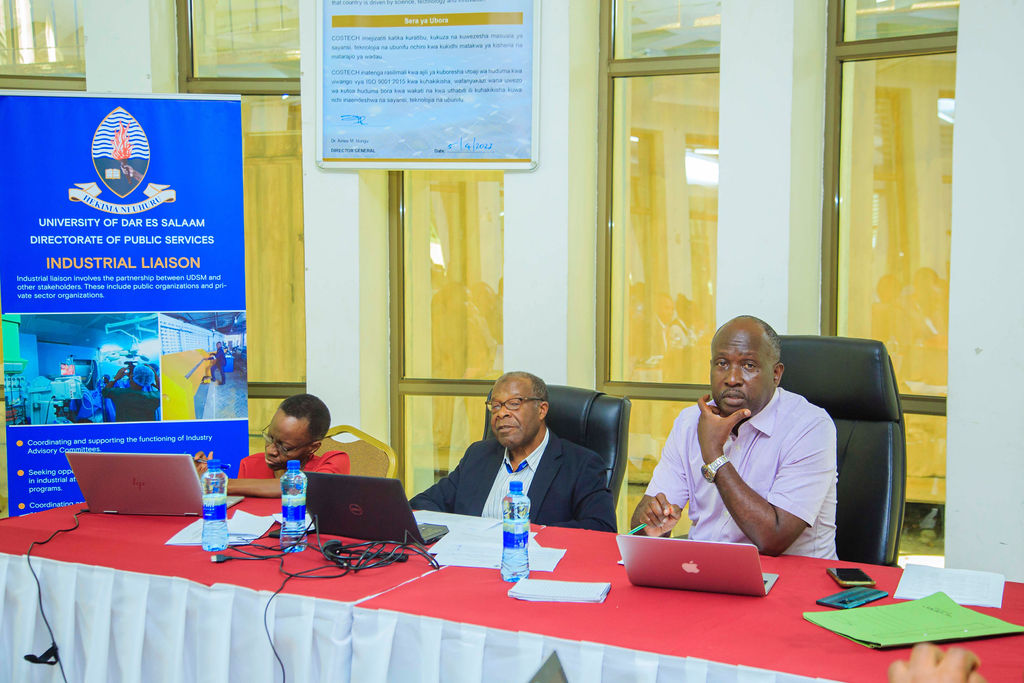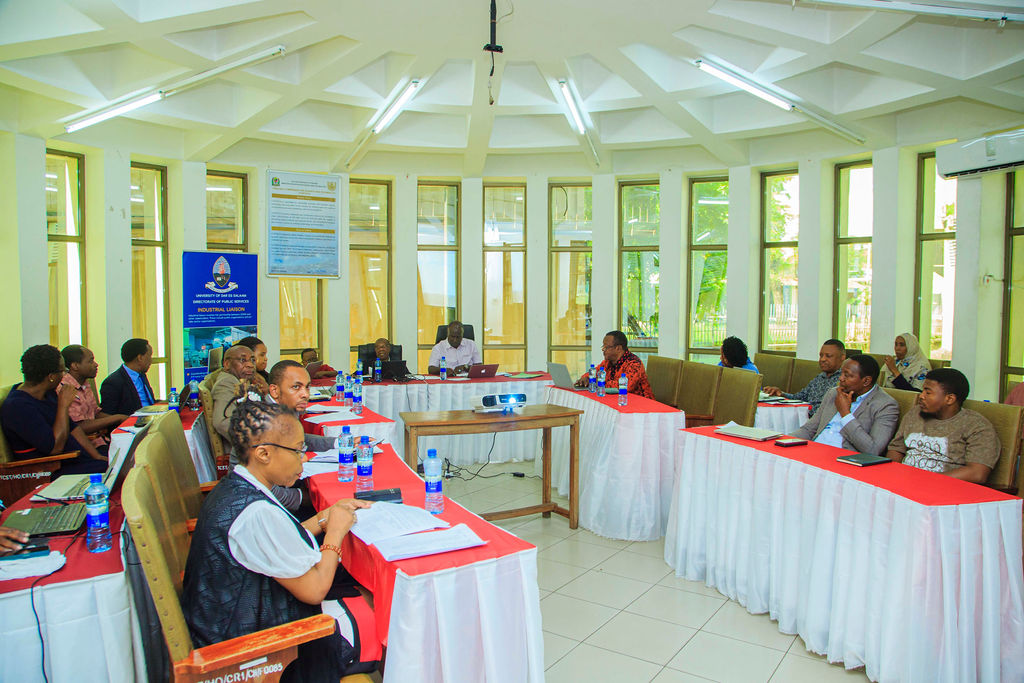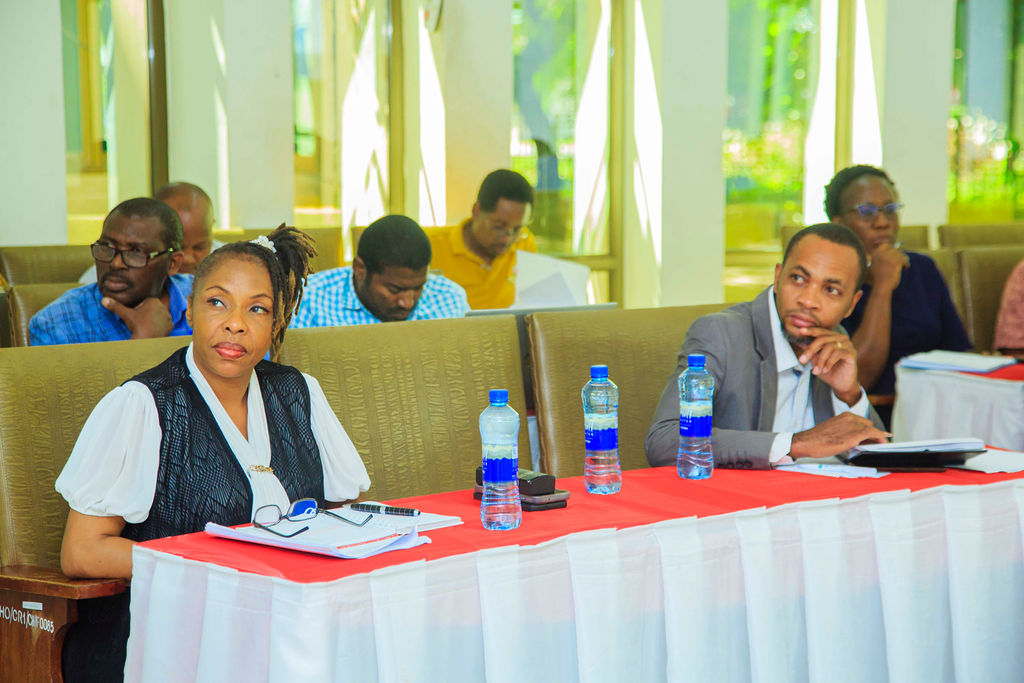News
Industrial Advisory Committee stresses on curriculum review, research collaboration
By Ally Mambele, CMU
The University of Dar es Salaam (UDSM) recently convened the 4th Industrial Advisory Committee (IAC) meeting which stressed on the speeding up of the ongoing curriculum review process, and strengthening of collaborative research initiatives.
The meeting, which was held on 20th November 2024 at the Commission for Science and Technology (COSTECH) premises had full representation from both the academic sector and industry, manifesting a crucial advancement in enhancing collaboration.
Dr. Eva Shayo, UDSM Head of Industrial Liaison at the Directorate of Public Services said the meeting provided an opportunity to assess the progress of several Memorandum of Understanding (MoUs) that have been established between UDSM and its industry partners.
“These agreements underscore UDSM's dedication to fortifying partnerships that promote development in research, innovation, knowledge exchange, and public service”, said Dr. Shayo.
Dr. Shayo said that the meeting also assessed progress of the ongoing University curriculum review process.
“Several undergraduate and postgraduate programmes at the College of Engineering and Technology (CoET), for instance, have been submitted to the Ministry of Education, Science and Technology (MoEST) as per the Higher Education for Economic Transformation (HEET) project requirement”, said Dr. Shayo.
She added that, MoEST has already reviewed the submission and offered feedback for considerations and appropriate amendments.
Scholarship initiatives, and joint research and innovation
Regarding scholarship initiatives, the updates received at the meeting included information about both existing and new scholarship programmes developed through collaborations with industry partners. These efforts aim to assist talented students and enhance access to high-quality education.
Dr. Shayo further said that the issue of joint research and innovation was also discussed, based on proposals for collaborative research projects aimed at tackling significant societal issues. Participants highlighted the importance of utilizing innovation to foster sustainable development and generate impactful solutions.
The meeting also deliberated on internship programmes for students in which the key topic of discussion focused on improving internship opportunities for UDSM students. Industry representatives were encouraged to, among other things, increase the number of internship placements to give students valuable, and practical experience.
“The meeting urged stakeholders to offer small financial incentives or stipends to assist students in covering their essential expenses during internships which will help them to concentrate on their professional growth without facing significant financial strains”, Dr. Shayo said.
On knowledge exchange and community engagement, the meeting’s conversations included strategies to improve the exchange of knowledge and expertise between UDSM and the industry, ensuring that communities and society reap tangible benefits.
The IAC reaffirmed its dedication to fostering a strong ecosystem that facilitates seamless collaboration between academia and industry to address real-world challenges, drive innovation, and advance national development objectives.
“UDSM expresses its appreciation to all industry partners and stakeholders who took part in the meeting. The university anticipates ongoing collaboration to realize common goals and enhance the effectiveness of academia-industry connections”, said Dr. Shayo.
About AICs at UDSM
The Industry Advisory Committee for the Higher Education for Economic Transformation (HEET) Project at the University of Dar es Salaam is a panel of individuals who collectively provide advice, guidance, and expertise about the delivery of key functions of the University.
The IAC assumes a pivotal role in advising, guiding, and supporting the University of Dar es Salaam (UDSM) in achieving its mission and vision. Serving as an effective linkage between the university and various industries, the IAC plays a crucial role in enhancing the quality of education and training activities to align with industry needs.
IAC consists of representatives from relevant industries, businesses, academia, professional associations, regulatory bodies, potential employers, research institutions, senior faculty representatives, alumni, and other stakeholders.
In the implementation of HEET Project at UDSM, six IACs have been formulated: Engineering and Earth Resources Management (EERM); ICT and Media; Marine and Aquatic Sciences Technology (MAST); Economics, Agriculture and Business Management (EABM); and Humanities, Social Sciences and Resource Management (HSSRM).
The functioning of the formulated IACs is based on provision of adjunct staff to deliver lectures as per the University guidelines; student and staff attachment to industry; involvement of industry in curriculum review and/or development; internships and job placement for graduates; and collaborative research and joint projects.
Other News
Sun, 05.Jan.2025 : Ministry of Blue Economy, UDSM in key conversations ahead of historic Foundation Stone laying at IMSFri, 20.Dec.2024 : ALAF Limited yatoa ufadhili wa masomo ya Umahiri katika Kiswahili kwa wanafunzi wa UDSM
Thu, 19.Dec.2024 : UDSM Herbarium: an invaluable resource fostering conservation, plant taxonomy and ecology
Sat, 14.Dec.2024 : Tracer study findings stress on curriculum to meet national human resource needs
Sat, 14.Dec.2024 : Prof. Mushi calls for ethical and inclusive innovation as Africa higher education leverages AI
Fri, 13.Dec.2024 : UDSM kuwa kituo cha utafiti wa Sayansi ya Bahari barani Afrika
Fri, 13.Dec.2024 : Multi-billion Sida funds to boost research on sustainable development at UDSM
Fri, 06.Dec.2024 : University of Bradford offers honorary degree to Prof. Ichumbaki for impactful research, community engagement


